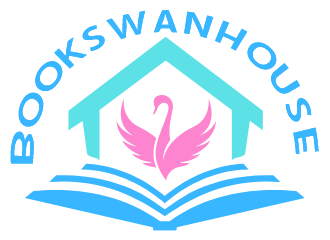As writers, writers, thinkers, and sometimes speakers, we can’t underestimate the importance of a rich vocabulary. Words can evoke strong emotions, evoke vivid images and express complex ideas. To accomplish that, it all comes down to understanding the value of having an expansive word bank. Imagine being able to express yourself with nuance and adeptness, picking the right word at the right moment and making your point with impact! Here, we’ll provide you with a few techniques on how to build vocabulary that will help you expand and enrich your word bank.
1. Mastering Word Mastery: A Guide to Growing Your Vocabulary
Learning the ins and outs of the English language can feel like a mountain too high to climb, but don’t let fear detour you from reaching the peak. Though mastering English as a language takes serious dedication, it can be broken down to more manageable feats.
If your goal is increasing your vocabulary, there are a few practical tips to help get you started. Combining the right strategies can help you understand how words work together in the writing you encounter daily, and expand the words at your disposal. Here are a few essential tips for mastering word mastery:
- Read, read, read! Reading is considered the cornerstone of gaining language skills. Get into the habit of reading a few pages everyday – regardless of genre or style.
- Study the etymology of words. Knowing the origin of words can help you understand their purpose and more effectively use them in your writing.
- Test yourself on new words. To create a lasting connection to a new word, put it to the test. Look up definitions and practice spelling and using the word every day.
- Creative inspiring groups. Networking with writers and avoiding language stagnation can be as simple as joining a writer’s group, or book club.
Building up your vocabulary and learning the nuances of language is an exciting pursuit. Arm yourself with the right strategies and you can become well-versed in English. With a few of these tips, it’s possible to quickly master the art of mastering words.
2. Creative Strategies to Expand Your Word Bank
There is no doubt that your English vocabulary will only improve with time. Writing, reading, and speaking will all help you to expand your word bank. But there are also that are fun and effective in a short amount of time.
One such creative strategy is to play word games. Word games like Scrabble, crossword puzzles, and obscure word games like Boggle and Bananagrams are all great ways to learn new words and expand your English language skills. You can also challenge yourself to create your own creative word game with the goal of learning new words.
It’s a good idea to also keep a dictionary and a thesaurus nearby. Both of these references can be consulted when you are listening to conversations or reading passages in English and need a definition of an unknown words. Jotting down unfamiliar words from conversations and books can also help you expand your vocabulary over time.
Creating flashcards is another effective strategy to increase your English vocabulary. Break the cards down into categories, for example, nouns, verbs, and adjectives. On the front of each card you should write down the word and on the back its definition. You can also create a quiz for yourself by flipping the cards over and testing yourself on words you don’t know yet.
3. Test Your Knowledge: Put Your Vocab to the Test
Now that you’ve learned a few basic terms relating to basic automotive concepts, let’s test your knowledge! Whether you’re looking for a refresher on key terminology or want to show off that you’re a car whiz, here is your chance. By the end of this activity, you’ll gain a better understanding of automotive terms.
1. Multiple Choice Quiz
Take our fun and educational multiple choice quiz to test your understanding of various vocabulary words. Answer ten questions and find out how well you know basic automotive terms. Are you ready? Click the ‘Start’ button to challenge yourself now.
2. Match the Terms
Play our match the terms game to get a full grasp on the terms and concepts involved in the automotive industry. Match each definition with the term that best describes it. It’s an engaging way to review the terms you’ve learned. So, give it a try!
3. Put Your Skills to the Test
Use what you’ve learned to answer these questions. Fill in the correct automotive terms and you’ll get a sense of which words you know the best. A few examples include:
- The transmission is the part of the car that sends power from the engine to the wheels.
- Cars need oil in order to lubricate the engine and keep it running properly.
- The brakes are used to stop or slow down a vehicle.
If you’ve finished the multiple choice quiz, the match the terms game, and filled in these questions, congratulations! You’ve completed the automotive vocab test. Take a look at your answers and see how many you’ve got right. You should now have a better understanding of the jargon involved in cars.
4. The Value of Increasing Your Lexicon: Why Add to Your Word Knowledge?
Words can be like a playground for a creative spirit and having control over them is an incredibly valuable asset.
Increasing your lexicon makes communication much easier. If you ever struggled to find the right words when talking, writing, or debating, having an expanded vocabulary can help you access more precise ways to express yourself. Adding to your word knowledge can help you understand the complexities of different topics in greater depth. You’ll find yourself better equipped to express yourself fluidly and accurately.
Building your vocabulary makes you a more versatile and marketable employee. In this day and age, employers don’t just want people who can do the job. They want well-rounded individuals that can think creatively, write clearly, and present ideas persuasively. Your vocabulary is the key to demonstrating you have these capabilities. Having a varied lexicon will make you stand out in the job market.
Students benefit from a larger lexicon as well. Those who have a more expansive knowledge of words can actually read faster and more effectively. When you can understand the meaning of words without any pauses to look them up, your comprehension and your reading speed will naturally increase. As much of the academic material relies on vocabulary, having a greater knowledge of the subject will make it easier for you to go above and beyond.
- Increased ability to articulate ideas.
- More robust language skills.
- Standing out in the job market.
- Improved reading speed & understanding.
Learning other ways to build your vocabulary can make speaking and writing in English more enjoyable. Gaining a large word bank of English words doesn’t need to be a daunting task; through use of memory tricks, association and context clues you can take your language skills to the next level. Developing a large vocabulary is the key to unlocking limitless communication potential in English and will inevitably lead to your increasing confidence as a speaker and writer.


